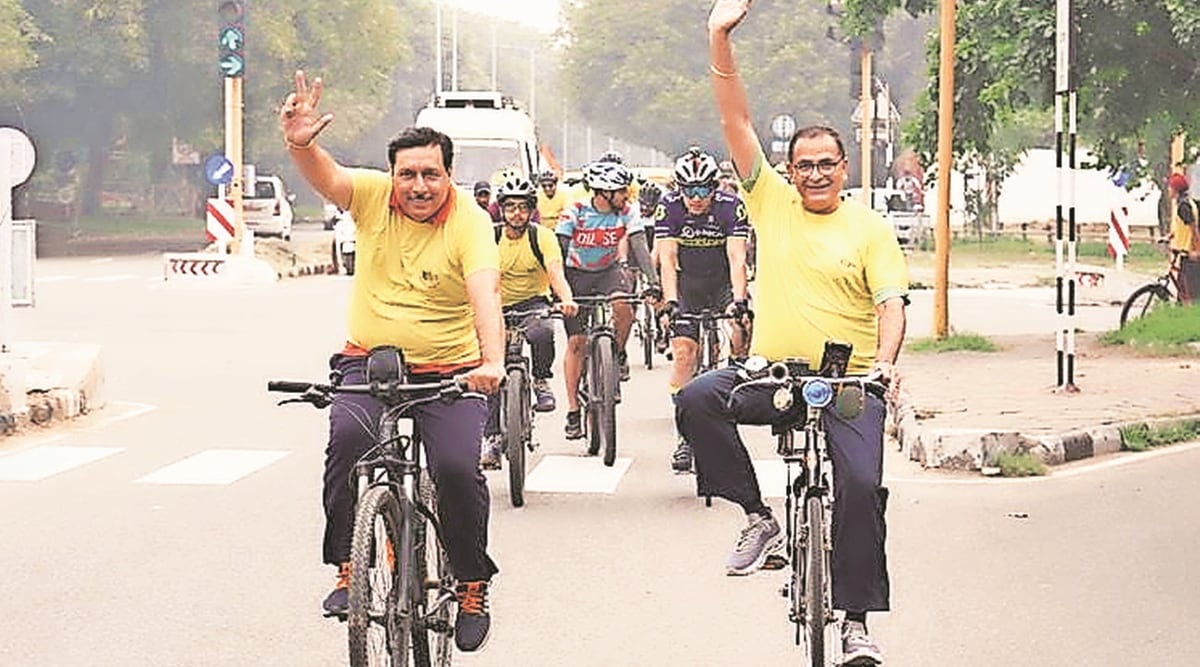 More than 450 cyclists from the city participated in the rally. (Express photo)
More than 450 cyclists from the city participated in the rally. (Express photo)THE Chandigarh State AIDS Control Society (CSACS) has initiated a number of new measures to create awareness among the masses about modes of HIV transmission and prevention. HIV/AIDS and sexually transmitted diseases are most prevalent in the age group 15 to 39 years. According to Dr VK Nagpal, Medical Superintendent, GMSH-16, and joint director of health, the new project director of CSACS, Chandigarh is now showing a declining trend in the HIV epidemic, and this is a result of extensive education and awareness about the disease.
To encourage a healthy lifestyle and to educate the public, especially the youth, CSACS state organised a cycle rally on Saturday starting from Sukhna Lake to New Lake, Sector 42, Chandigarh. More than 450 cyclists from the city participated in the rally, the primary message being, ‘Know AIDS for No AIDS’, motivating people to come forward and gather correct knowledge about HIV/AIDS and controlling its spread in the city. Dr Nagpal said the need is to reach out to areas in the city where high-risk populations reside. “The emphasis is on sensitisation, counselling, bridging gaps and most importantly addressing the stigma attached to HIV/AIDS and how prevention is the key,” said Dr Nagpal.
CSACS was registered in 1998 for implementing the National AIDS Control Programme and according to Dr Nagpal, it’s through preventive methods that we can move forward. “Testing is the key and we now have 12 testing centres here in Chandigarh and in all government hospitals, counselling, medicines, and testing is free of cost. We have special camps for the migratory population. We are working towards streamlining the supply of medicines to various hospitals, as per the guidelines of the National AIDS Control Programme,” added Dr Nagpal.
CSACS has a mobile van which reaches out to high-risk people, operating six days a week. The people are mobilised, motivated and counselled to test. “It is a single-prick test and apart from the HIV/AIDS test, Hepatitis B and C tests are also offered without any charge. People living with HIV/AIDS are our brand ambassadors and we encourage peer groups to be a part of this process. We go back to these groups every six months, the idea being consistent reaching out, with compulsory pre and post counselling. We have people registered with CSACS and they are taking regular treatment. With advancements in medical science, side effects of the medicines are also less. We have also launched a campaign, know your HIV status and we hope that our efforts will create more awareness and less stigma about AIDS,” said Dr Nagpal.